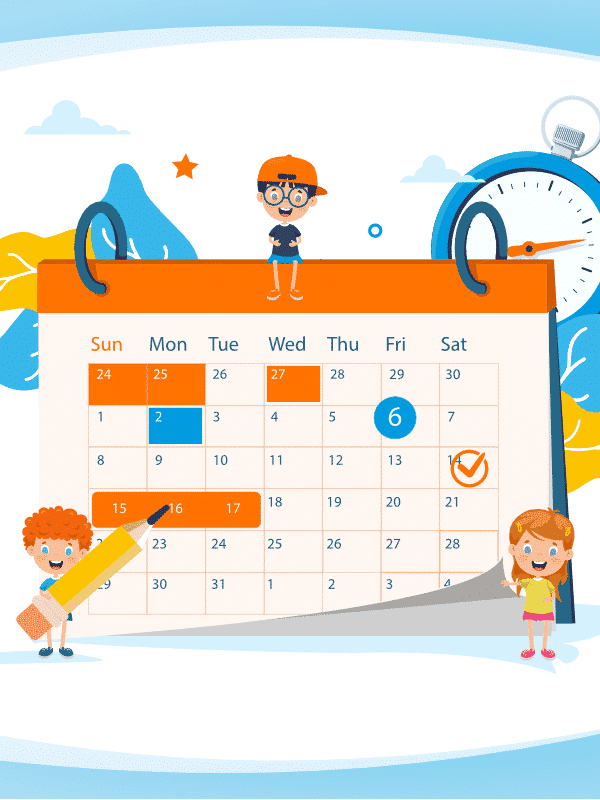Enrolling your kids in a bilingual or dual language program is a crucial first step on their journey to fluency. Not all language programs, however, are created equal. Every child learns differently, and every program offers something different to the learners. It can be easy to feel overwhelmed when looking for a bilingual program that suits your child’s needs, (and one that truly gets your kids fluent), but we’re here to help.
This post will walk you through the seven most important questions to ask on your bilingual or dual language program tour, explain what makes a language program great, and help you find the right fit for your child.
Finding A Dual Language Program That Fits You!
Question 1: What methods will your program use to facilitate fluency?
Think about the way babies have learned languages throughout the centuries; they begin by listening and then speaking, not verb conjugation and written assignments!
To ensure that your child is getting a truly immersive experience, you’ll want to pick a program that goes beyond grammar exercises and written memorization. Studies show that engaged students perform better in class, and for a child to truly learn a language, they need to be engaged through speaking activities and a more immersive experience. A great program focuses on conversation first. No 4 year old is reading and writing, and they’ve been learning to speak for 4 years before that, so let’s learn the natural way that is 100% effective.
Question 2: What types of teaching experience do the instructors have?
Just because someone knows a language doesn’t mean they know how to teach it. It’s important to know your child’s future teacher doesn’t just know the target language, but is also qualified and has a substantial amount of teaching experience. What’s even more important to remember, however, is just because someone has experience, that doesn’t mean they’re automatically a great fit for your child. According to the Intercultural Development Research Association (IDRA), “teachers who have been in the field for several years need to be aware of new knowledge that is emerging through research and experience.” Finding a teacher that is both experienced and interested in the newest and most effective teaching methods will help your child succeed in acquiring a language. Also, ask if the teacher has experience with immersion, the storytelling method, the natural method, and will not be translating all day. If an instructor translates throughout the day, then your child will simply learn to wait until they hear English, tuning out the Spanish.
The Best Dual Language Programs Embrace Change
Question 3: Does your program keep up with the latest research?
A program that follows the latest research in bilingual education will most likely be a better option for your child. Programs that are focused on archaic practices (grammar, writing and reading focus…) and are not interested in improving will probably have a more closed mindset when it comes to teaching. The IDRA warns parents against this, stating, “parents must make sure that schools have the basic knowledge about bilingual education, and that their bilingual programs adhere to recent research findings.”
Question 4: What is the language level of kids that have been in the program for two or more years?
For students to stay motivated, they need to see that they are improving. That’s why if you see that students are leaving a program after several years with just beginner’s knowledge, it’s time to move on. After a couple of years in a solid program, students should be able to have conversations in the language, express themselves, and notice a significant increase in their language confidence. A great language program will not only help your child improve their skills, but it will also help them see that with a little effort and time, they can improve greatly.
Class Size and Content Matter In A Language Program
Question 5: How big are the class sizes?
Smaller is better. Studies show that students actually learn at a faster pace and generally perform better in a smaller classroom than a larger one. For your child to succeed, they need individual attention and personalized plans that fit their unique strengths and weaknesses. An effective language learning program will prevent your child from slipping through the cracks by encouraging them to ask questions, stay engaged, and feel confident. The more the child has talk time with the teacher, the most confident they will get in the class. Make sure the kids, and not just the teacher, are the focus of conversations in classes. If a teacher talks most of the time, the kids learn to understand spoken Spanish, but do not build confidence speaking it. That’s where you get, “I understand it, but I can’t respond” students, which are many!
Question 6: What kind of assessments are done?
It’s crucial to find a program that regularly assesses your child’s progress. Keeping track of your child’s improvement will help both you and the instructor stay aware of what your child is learning, what they are retaining, and what they can improve on. As tests and quizzes can take on many different forms, it’s important to ask yourself what kind of assessments are used, how often they are assigned, and how the teacher provides feedback. We suggest a simple oral assessment is a great way to go.
Environment Is Key In Language Acquisition
Question 7: What kind of language learning environment does the program provide?
The environment is extremely important when it comes to language acquisition. As language-learning pioneers Heidi Dulay, Marina Burt, and Stephen Krashen wrote in their 1982 book Language Two: “the most beneficial environment for the learner is one which encourages language learning in natural surroundings for genuine communication.” Here are some key elements to look out for when deciding if a language program is right for your child:
● Supportive: The learner should feel comfortable making mistakes.
● Linguistically and non-linguistically diverse: A program should push learners to acquire their skills through immersion.
● Engaging: Learners should focus on tasks that are interesting to them and suit their individual needs.
Even if you find a great bilingual or dual language program, additional support is strongly encouraged. That means incorporating activities in the target language at home, using key phrases at home, and even hiring a language tutor. If your child is already learning a language in school, hiring a tutor will help them excel and get a leg-up on their peers.
How TruFluency Kids Can Support Your Child’s Fluency Journey
The time has come, and you need to find a tutor for your child. Luckily, TruFluency Kids has you covered. At TruFluency, our tutors engage students through conversation, immersion, and personalized assistance. For us, fluency isn’t just a goal, but a journey that can transform the way your child thinks about themselves and the world around them. If you want to find out more about our tutors and how our program can help your child become fluent in Spanish, click HERE.


